Tshering Chonzom > Research Staff
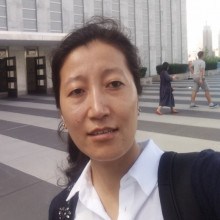
Dr Tshering Chonzom Bhutia was a Visiting Associate Fellow at the Institute of Chinese Studies, Delhi. She holds a PhD from the Centre for East Asian Studies, School of International Studies, Jawaharlal Nehru University, India. Her thesis was titled 'Applying Negotiation Theory to the Sino-Tibetan Talks, 1979-2006'. She has just completed a significant research project comparing the Indian and Chinese government's ethnic minority/nationalities policies.
She was part of the prestigious International Visitor Leadership Programme (IVLP) sponsored by the United States Department of State in July 2017. Earlier in June 2017, she was at the Southwest University for Nationalities, Chengdu, Sichuan, China (within the Department of Tibetan Studies) on a one-month teaching fellowship as a 'foreign expert'. In 2007, she participated in a month-long diploma programme supported by the Ministry of National Defense of the Republic of Taiwan.
She has a rich work experience including research, editing and programme coordination. Her last stint as Programme Coordinator for the Heinrich Böll Foundation's programme on 'Democracy and Conflict' in India lasted for about four and a half years. Before that, she was Programme Coordinator, Assistant Editor and Assistant Fellow at the Indian Institute of Dalit Studies in its Publications and Dissemination Unit. Her first work assignment was with the Institute of Peace and Conflict Studies as a Research Officer in charge of its China Desk.

The Tibetans who followed the Dalai Lama after he fled to India in 1959 chose to live in makeshift houses, in the hope that the arrangement was temporary and they would go back home soon.

The Indian government’s distancing from the Tibetan events is at odds with its proximity to the Dalai Lama and the CTA the past four years.
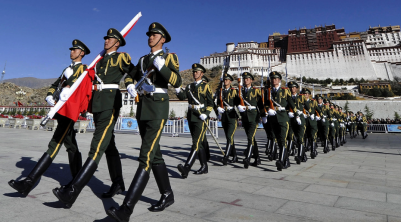
Under the leadership of Xi Jinping, along with the United Front Works Department and the various security apparatus in the country, the Central Commission for Discipline Inspection Commission (CCDI) has been deployed to counter and subdue ‘separatism’ in Tibet.

Is India distancing itself from the Tibetan exile community six decades after the Dalai Lama fled to the country?

In a rare snub, New Delhi put its relationship with Beijing ahead of its exiled Tibetan community. But just how far is the Modi administration willing to go to ease tensions with its rival?

New Delhi buckling to Beijing by red-flagging Dalai Lama event?

THE DIPLOMAT
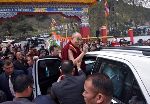
Will the Dalai Lama reincarnate in Tawang?
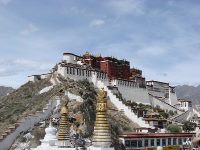
Meet Tibet’s new governor, and the other figures shaping China’s Tibet policy.

Will Tibet become China’s bridge to South Asia under the Belt and Road Initiative?
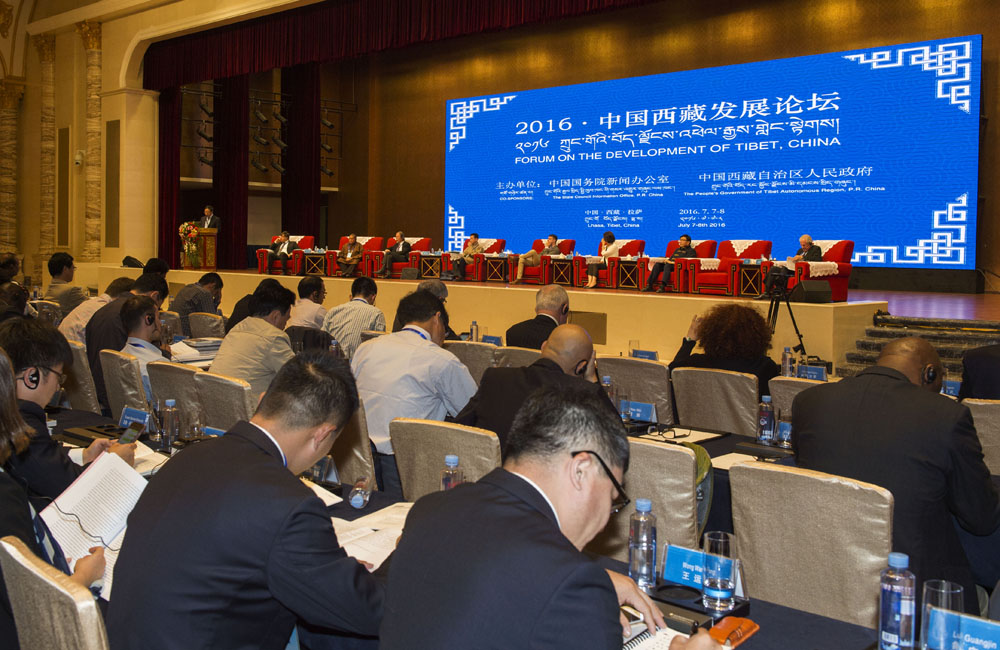
China organised yet another ‘Forum on the Development of Tibet’ that lasted for two days from 7 to 8 July 2016 and was jointly organised by the Tibet Autonomous Region (TAR) local government and the central State Council Information Office (SCIO). Interestingly, despite all the controversy garnered by the conference declaration titled ‘Lhasa Consensus’ that was issued on the conclusion of the Fourth Forum in 2014 (Xinhua 2014), the organisers yet again issued another ‘Lhasa Consensus’ (Tibet Online 2016a).

A brief conversation illuminates how public opinion is shaped by (and diverges from) official Chinese narratives.

Recent developments in cross-strait relations raise interesting questions for Tibet’s leadership in exile.

Without doubt, Tibet is the connecting thread – the inconspicuous link – in the India-China border dispute.
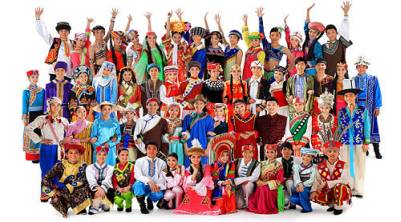
The data more or less speaks for itself. It is clear that in the research focus of students, university faculty, analysts to think tanks, there is a lop-sided focus on Tibet related issues.

The question looming large in everybody's head seems to be – what caused the protests inside Tibet?
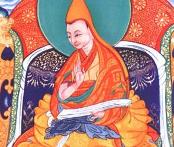
Discussions range from whether the Dalai Lama would be reborn in Tibet or outside to who has the ultimate authority to choose the next Dalai Lama.
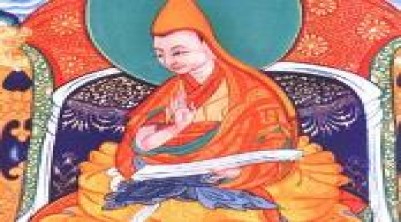
दलाई लामा के बाद की स्थिति और चीन-तिब्बत समस्या पर इसके प्रभाव को लेकर लंबे समय से चर्चा चल रही है। इस बड़ी बहस से जुड़ी हुई, लेकिन सर्वव्यापी चर्चा हमें दलाई लामा के अवतार या zhuanshi (转世) से संबंधित सवाल की तरफ़ ले जाती है।
Lezlee Brown Halper and Stefan Halper, India: Hachette, 2014, in The Book Review, Vol. XXXVIII, No. 12
There has, of late, been growing interest in media across the world about a possible thawing of relations between the Dalai Lama and the Chinese authorities.
ICS Analysis, No. 18, October 2014

Hindustan Times
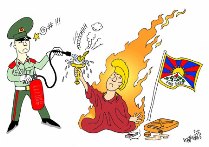
Dissent and opposition on the Tibetan plateau has surfaced prominently from time to time since the late 1950s – but has taken a serious turn in the form of the ‘self-immolations’ since 2009.

There is now light at the end of the tunnel. As you know, they fought like a 33% representation of women in the Indian Parliament.
Hindustan Times, New Delhi
Negotiation Theory and Conflict Resolution; International Relations theory; Domestic (minority) sources of China’s foreign policy diplomacy; Sino-Tibetan dialogue process; Indian and Chinese minority policies; political economy of Chinese development policies in Tibet; Tibet factor in India-China relations & Tibetan question in India; and Post-14th Dalai Lama contingencies. She regularly speaks and writes on these issues in national and international forums.
© 2019 ICS All rights reserved.
Powered by Matrix Nodes
Tibetan confidence in India has increased, but will Modi give in to China?
19 Sep 2014
Hindustan Times